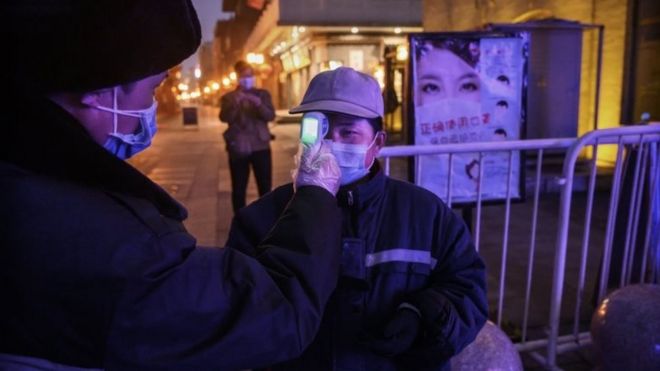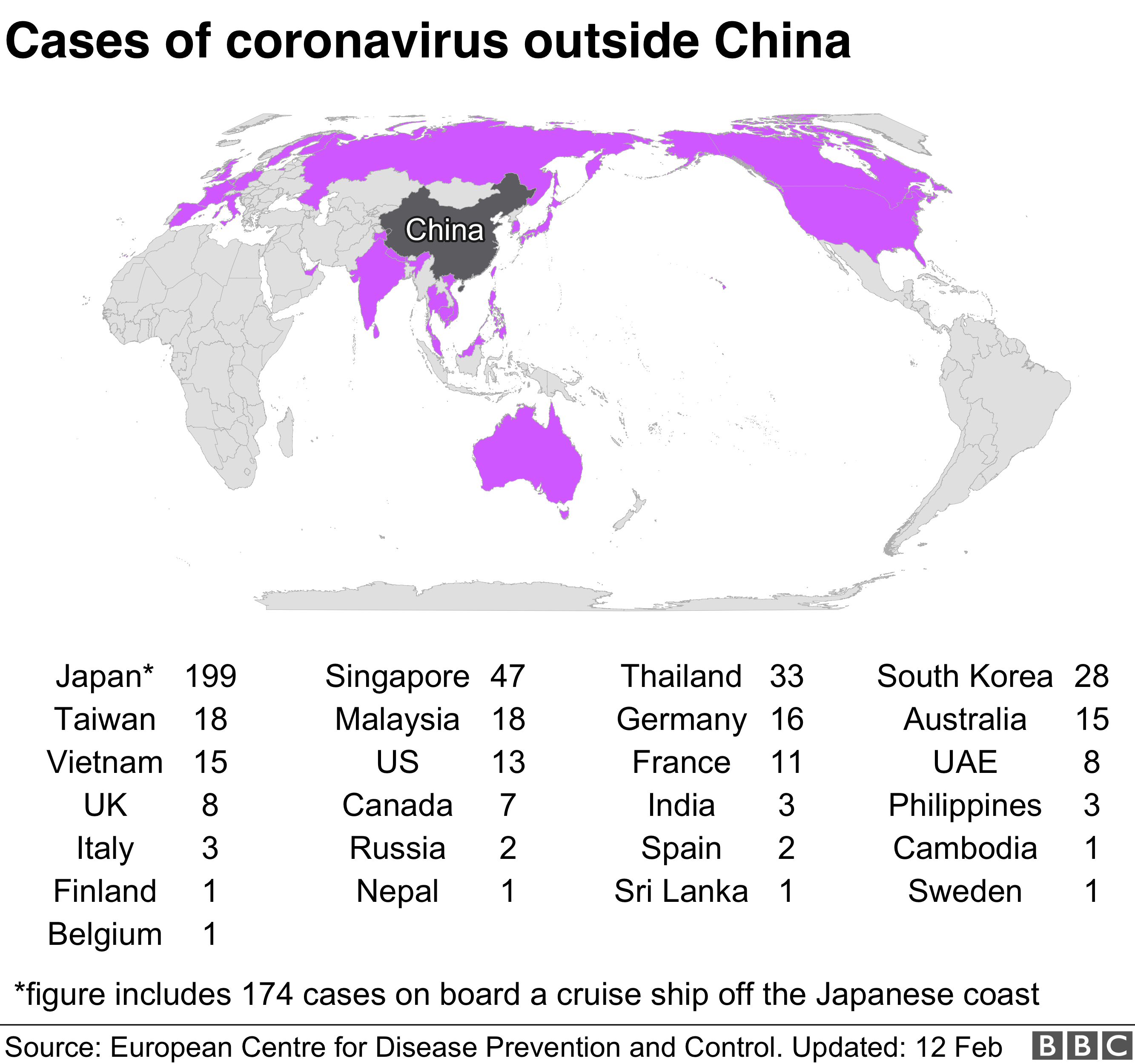By BBC
Cases have emerged for the first time in countries such as Austria following the Italian outbreak
Several European countries have announced their first coronavirus cases, with all appearing to be linked to the growing outbreak in Italy.
Austria, Croatia and Switzerland said the cases involved people who had been to Italy, as did Algeria in Africa.
The first positive virus test has been recorded in Latin America - a Brazilian resident just returned from Italy.
Italy has in recent days become Europe's worst-affected country, with more than 300 cases and 11 deaths.
But its neighbours have decided closing borders would be "disproportionate".
Health ministers from France, Germany, Italy and the EU Commission committed to keeping frontiers open at a meeting on Tuesday as new cases of the virus emerged throughout Europe and in central and southern Italy.
"We're talking about a virus that doesn't respect borders," said Italian Health Minister Roberto Speranza.
His German counterpart Jens Spahn said the neighbours were taking the situation "very, very seriously" but acknowledged "it could get worse before it gets better".
Media captionMark Lowen was on the ground at the edge of Italy's coronavirus lockdown area
In the UK, schoolchildren returning from holidays in northern Italy have been sent home, with the government issuing new guidance to travellers.
But Health Secretary Matt Hancock said there were no plans to stop flights from Italy, which attracts about three million British visitors each year.
"If you look at Italy, they stopped all flights from China and they're now the worst-affected country in Europe," he said.
What's the latest around Europe?
In Austria, a young Italian couple who live in Innsbruck in the Tyrol were confirmed to have the virus. One of the pair worked at a hotel, which has been put in lockdown. The couple's home is also sealed off.
Switzerland said a man in his seventies living in Ticino, bordering Italy, had been infected in the city of Milan on 15 February and was now in isolation.
A man in Croatia who recently returned from Italy became the first confirmed patient in the Balkans
In Spain's Tenerife, up to 1,000 guests were locked down in a hotel after an Italian doctor and his wife tested positive for the virus.
Spain reported its first case on the mainland, involving a woman in Barcelona who had been to northern Italy.
France and Germany also reported new cases involving people who had recently been to northern Italy.
What's the global picture?
Italy is one of three global hot-spots outside China. In Iran, fewer than 100 people have officially been infected but it's assumed the numbers are far higher. The infection of the country's deputy health minister has deepened fears that the virus has already spread widely.
More than 1,000 people have been infected in South Korea, where 10 people have died. The country has the most infections outside China.
Many of the cases are linked to a branch of the Shincheonji Church of Jesus in the city of Daegu. All the church's more than 215,000 members are now being tested by health authorities, according to reports.
Media captionIran's deputy health minister appeared unwell at a news conference before testing positive for the coronavirus.
In Brazil, local media reported on Tuesday that an initial test on a 61-year-old man who had recently been to northern Italy had come out positive.
They said the man from São Paulo would be tested again for final confirmation.
The individual, whose name was not given, arrived back in Brazil at the height of the carnival festivities, when millions of people travel around the country. Officials fear the timing of his return makes it more likely the coronavirus could have spread.
Most of the cases of the new coronavirus remain in China, where the virus originated last year.
According to the latest figures published on Wednesday, 78,064 people have been infected since the outbreak began.
Health officials also reported 52 more deaths on Tuesday, the lowest daily total in more than three weeks. The overall death toll in mainland China is now 2,715.
Numbers of new infections there have been declining in China, and attention has now turned to clusters of cases abroad and transmission between countries.
The director general of the World Health Organization (WHO) has said the sudden increase in cases in countries outside China is "deeply concerning".
On Tuesday, the US Centers for Disease Control and Prevention warned that the virus could bring "severe" disruption to the US, with one official saying it was not a question of if but when the virus would become a global pandemic.
Meanwhile, US Secretary of State Mike Pompeo urged all nations to "tell the truth about the coronavirus", saying that Washington was concerned that Iran may have concealed "vital details" about its outbreak.
Of the current hot-spots outside China, Iran is the most concerning because of the lack of an accurate picture of how widespread the outbreak really is, said Dr Nathalie MacDermott, an expert in infectious diseases at King's College London.
Most of the reported cases have been people who are elderly and dying, she said. "It seems like we're hearing about the tip of the iceberg and missing that chunk underneath who may be younger and may not be particularly unwell."
There are fears that the many Muslim Shia pilgrims and migrant workers who will have travelled between Iran and other parts of the region in recent weeks could have already spread the virus.
Iran is believed to have been the source of the first cases reported by neighbouring Afghanistan, Bahrain, Iraq, Kuwait and Oman, which have now imposed restrictions on travel to and from the Islamic Republic.
Related Topics









